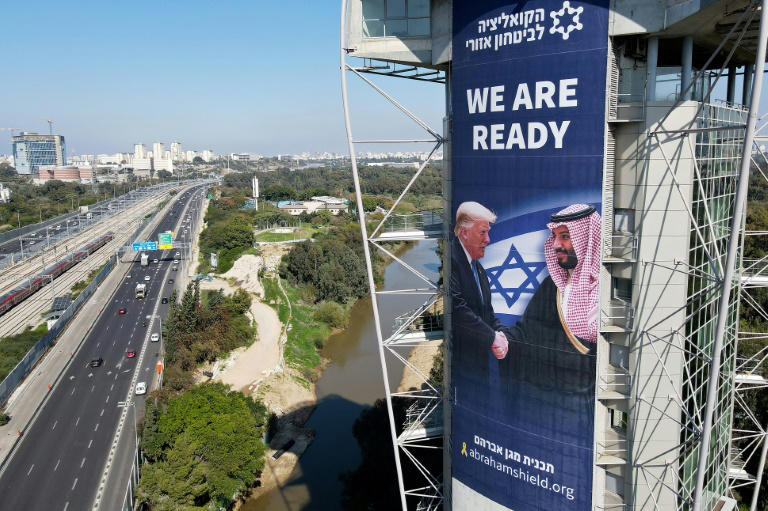Trump’s Gaza Plan Threatens Saudi-Israel Normalization and Regional Stability, Say Experts
Trump’s Gaza Plan Jeopardizes Saudi-Israel Normalization, Say Analysts
Washington, D.C. – Former U.S. President Donald Trump’s recent proposal to redevelop Gaza and displace its over two million Palestinian residents has sparked a global outcry, with experts warning that the plan could derail Saudi-Israel normalization efforts and fuel anti-American sentiment in the region.
According to analysts, Trump’s plan places Saudi Arabia in a difficult position as it navigates its long-standing alliance with Washington, its regional security concerns, and its ambition to transform into an economic powerhouse through post-oil reforms.
Saudi-Israel Normalization at Risk
The recognition of Israel by Saudi Arabia has been regarded as a landmark goal in Middle East diplomacy, aimed at stabilizing the region and strengthening alliances. However, the recent developments surrounding Gaza have placed significant obstacles in the way of such progress.
“If this is going to be his policy, he shut the door on Saudi recognition of Israel,” said James Dorsey, a researcher at the Middle East Institute of the National University of Singapore.
Saudi Arabia, home to Islam’s holiest sites and the largest economy in the Middle East, has long been cautious in approaching normalization. The country has maintained that any formal ties with Israel would require progress toward the establishment of a Palestinian state.
Security Concerns for Saudi Arabia
Trump’s plan also raises concerns about regional stability, particularly for neighboring countries like Jordan and Egypt. Analysts warn that an influx of displaced Gazans into these nations could destabilize the region, indirectly threatening Saudi Arabia’s own security.
“Trump’s plan, coupled with Netanyahu’s approach, poses major risks for Saudi Arabia,” noted Saudi researcher Aziz Alghashian. “It highlights that they are not true partners for peace in Riyadh’s eyes—especially Netanyahu, who appears to want all the benefits without making concessions.”
The kingdom must also balance its diplomatic relationship with Washington, its key security guarantor against Iran. However, Saudi Arabia is unlikely to blindly follow U.S. directives, analysts suggest.
“They are not a U.S. vassal state and so they’re not just taking a diktat from Trump,” said Andreas Krieg of King’s College London.
Swift Saudi Response
Saudi Arabia wasted no time in rejecting Trump’s proposal. Shortly after the former U.S. president’s comments alongside Israeli Prime Minister Benjamin Netanyahu, the Saudi foreign ministry issued a strongly worded statement on X (formerly Twitter).
The statement reaffirmed the kingdom’s “unequivocal rejection of attempts to displace the Palestinian people from their land.” Additionally, it dismissed Netanyahu’s claims that normalization was inevitable, reiterating that ties with Israel would not be possible without Palestinian statehood.
This rapid response signaled Saudi Arabia’s firm stance on the issue, making it clear that it would not compromise its regional credibility or its leadership role in the Arab world.
A Blow to U.S. Efforts in the Region
Trump’s declarations have not only complicated Saudi-Israel normalization but have also fueled growing anti-American sentiment in the kingdom.
“His plan will further destabilize the region and fuel anti-American sentiment, particularly in Saudi Arabia,” said Anna Jacobs of the International Crisis Group.
With Saudi Arabia seeking security assurances and nuclear cooperation from the U.S. in exchange for normalizing ties with Israel, Trump’s latest move has made negotiations even more complex.
“Nobody in Saudi Arabia has an interest in selling out Palestinian statehood,” Krieg emphasized. “That is the last and the most important bargaining chip that the Saudis have in terms of authority and legitimacy in the Arab and Muslim world.”
Future of Saudi Diplomacy
Crown Prince Mohammed bin Salman, Saudi Arabia’s de facto ruler, has maintained a calculated approach to diplomacy, and analysts believe that Riyadh will not take any immediate steps regarding normalization with Israel.
“I don’t think that the Saudis will take any major steps now,” said Krieg. “They obviously have their own levers that they can use for pressure on America, particularly in the energy sector. I don’t think the Saudis will want to use it at this point.”
With Trump’s plan causing widespread backlash and uncertainty in the region, the future of Saudi-Israel ties remains in question. For now, Saudi Arabia appears firm in its stance, prioritizing regional stability and its long-term strategic goals over any immediate political gains.

